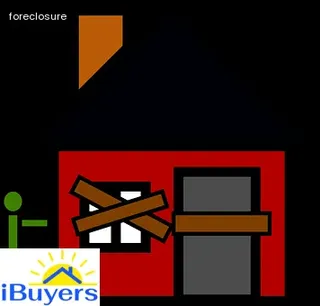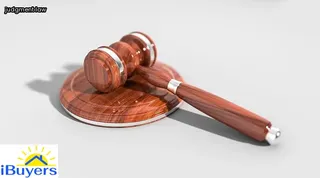Understanding preforeclosure in Florida is essential for homeowners facing the possibility of foreclosure. Preforeclosure is a period of time when a homeowner has defaulted on their mortgage payment, but the lender has not yet initiated a foreclosure process and the house remains in the owner's possession.
During this time frame, it is possible for the homeowner to take corrective measures, such as negotiating with the lender or seeking out a third-party loan modification service. Homeowners can also work with local housing counselors to discuss their options and explore other ways to avoid foreclosure.
If all else fails, however, and it becomes clear that foreclosure is inevitable, then it is important to understand that Florida law provides specific timelines and guidelines that must be followed by lenders during the foreclosure process. Understanding these timelines can help homeowners prepare for what comes next and make sure they are given ample opportunity to make arrangements before losing their home.

The foreclosure process in Florida can vary depending on the type of loan a homeowner has and the county in which they live. Generally, when a mortgage payment is missed, the lender will send the borrower a Notice of Default, which notifies them that they are in default on their loan and must correct it by making up all payments due or face foreclosure.
After this Notice, the lender will file a Complaint with the local court to begin formal foreclosure proceedings. At this point, homeowners have 20 days to cure their loan by paying off all past-due amounts plus any additional fees and costs incurred by the lender.
If no action is taken within 20 days, then an auction date for the property is set and announced at least 21 days prior to sale. The auction date is usually held at the front steps of the County Courthouse.
The highest bidder at this sale will be awarded ownership of the property if it goes through successfully; otherwise, if unsuccessful or canceled, ownership remains with original owner who now has more time to pay off debt or possibly renegotiate terms with lender.
In Florida, homeowners facing foreclosure have a few options to consider in order to prevent their home from going into foreclosure. One of the simplest options is to contact the lender and negotiate a payment plan that works for both parties.
If a payment plan cannot be agreed upon, homeowners could look into refinancing their loan or applying for loan modification to lower monthly payments. Additionally, it may be possible to obtain a forbearance agreement with the lender which would allow the homeowner to temporarily suspend mortgage payments until they can get back on track financially.
Other options available include short sale, deed-in-lieu, cash-for-keys or home equity loans. All of these solutions should be discussed with a qualified real estate attorney before making any decisions about preventing foreclosure in Florida.

When a homeowner in Florida lets their home go into foreclosure, it is important to understand the potential consequences. One of these is the possibility of a deficiency judgment, which can have a significant impact on the homeowner’s future financial situation.
A deficiency judgment occurs when the sale of a foreclosed home does not cover all of the mortgage debt owed. In this case, the lender may choose to seek compensatory damages from the borrower in court - referred to as a deficiency judgment.
This means that if a foreclosure auction sale doesn’t cover the full balance of what was owed, then the borrower could be liable for any remaining debt after the auction takes place. It is important for homeowners in Florida to be aware that this type of judgment can happen and plan accordingly before entering into foreclosure proceedings.
Furthermore, homeowners should be sure to research their state’s laws regarding deficiency judgments, as each state has different rules and regulations in place about them.
In Florida, foreclosure cases are dismissed for a variety of reasons. One of the most common is that the lender failed to properly serve the homeowner with the documents required by law.
Without proper notification, homeowners may not be aware of their rights to challenge a foreclosure case in court or take other steps to protect their property. Another common reason for dismissal is that the mortgage servicer or lender did not have standing to bring the foreclosure action in the first place.
This could be due to a technical error or an issue with the paperwork related to ownership of the loan. Additionally, if all of the necessary paperwork wasn't filed correctly and in a timely manner, then this could lead to a dismissal as well.
In some cases, homeowners may have defenses available against foreclosure based on violations of consumer protection laws or other matters that can form grounds for dismissal. By understanding why foreclosure cases are dismissed in Florida, homeowners can better prepare themselves and avoid potential legal issues when dealing with this difficult process.

Getting professional assistance with foreclosure proceedings is critical when it comes to understanding the foreclosure process in Florida. Working with an experienced attorney or a qualified loan modification specialist can be invaluable in providing legal advice and helping homeowners navigate the complex laws that govern foreclosures.
A trained specialist can provide essential guidance on necessary paperwork and deadlines, as well as help negotiate options such as loan restructuring, forbearance agreements, or deed-in-lieu of foreclosure. It is also important to know that there are government programs available to assist homeowners who are facing foreclosure.
Being familiar with these programs can help maximize options for keeping a home out of foreclosure or minimizing financial costs associated with clearing the debt. Lastly, working with professionals can help ensure that all steps of the foreclosure process are accurately followed and best protect a homeowner's rights throughout the entire ordeal.
A Florida Foreclosure Trial is a legal proceeding that may take place if the homeowner contests the foreclosure of their home. The trial will be held in front of a judge and jury, who will determine whether or not the homeowner should be allowed to keep their home.
During the trial, each party will present evidence in support of their position. The plaintiff (the lender) must prove that the borrower is delinquent in their payments and cannot pay back what they owe.
The defendant (the borrower) must show that they are able to make payments and can catch up on past due amounts. Both parties may bring witnesses and other forms of evidence to court as part of their argument.
Ultimately, it is up to the judge to decide who has presented a stronger case and whether or not foreclosure should proceed.

Unclean hands is a legal defense that can be used in certain cases of foreclosure. In Florida, this concept may be applied to the foreclosure process when a homeowner believes they have been taken advantage of by lenders or other parties involved in their home loan.
An example could be if the lender failed to provide proper disclosure of terms and conditions related to the loan agreement. A key factor in determining whether unclean hands applies is whether the homeowner has suffered some form of harm due to the alleged misconduct of the lender.
If this is found to be true, then unclean hands may serve as a defense against foreclosure in Florida courts. It is important for homeowners facing foreclosure to understand their rights and all potential defenses that may help them keep their home from going into foreclosure.
Understanding unclean hands and its application in Florida can help homeowners make more informed decisions about their future, especially when it comes to protecting their homes from foreclosure proceedings.
In the state of Florida, a homeowner who is facing foreclosure can challenge the action by proving a legal doctrine known as unclean hands. This principle states that if the lender has acted unfairly or unethically when it comes to lending practices, it may be possible to challenge the foreclosure action in court.
To prove unclean hands, a homeowner must provide evidence of fraudulent or negligent behavior on the part of the lender such as double-charging interest, improperly reporting income information, or failing to follow through with loan modification agreements. If successful, this could potentially result in a dismissed foreclosure case and allow the homeowner to keep their property.
It is important for homeowners to understand their rights and take steps to protect themselves from predatory lenders before taking any further action.

One way to potentially stop a foreclosure in Florida is to use conditions precedent. Conditions precedent are legal requirements that must be met before a foreclosure will move forward, and they can provide significant protections to homeowners.
Examples of conditions precedent include the lender providing proof of ownership of the loan or offering an alternative payment plan. These conditions must be fulfilled by the lender before a foreclosure action can begin.
Homeowners can also negotiate with their lenders to set up a repayment plan or modify their loan terms to avoid foreclosure. Furthermore, if the homeowner is able to reduce the amount owed on the loan, they may be able to prevent a foreclosure from happening altogether.
As such, understanding how conditions precedent work and using them as part of an overall strategy can help delay or stop a foreclosure proceeding in Florida.
In Florida, a mortgage lender or servicer can initiate the foreclosure process through the issuance of a Notice of Default. This document informs borrowers that they are in default on their loan and must either pay the delinquent amount or face further action potentially leading to foreclosure.
The Notice of Default must be sent to borrowers before any foreclosure proceedings can begin, and it will typically include information about how much is owed and what steps need to be taken if foreclosure is to be avoided. Furthermore, it should also explain when and where a borrower may contest the claim that they are in default.
It's important for borrowers to understand that this is not an immediate step towards foreclosure; rather, it serves as a warning system indicating impending danger if certain actions are not taken. It's also important for homeowners to note that lenders may choose to pursue other options than foreclosure such as pursuing repayment plans or modifying existing loans before initiating a Notice of Default.

Cancelling a scheduled foreclosure sale in Florida can be a difficult process to navigate, and it is important to be aware of all the steps that must be followed in order to successfully cancel the sale. To begin, the homeowner must contact their lender before the date of the sale and discuss ways to avoid defaulting on their mortgage.
If an agreement is reached between both parties, then the lender should provide a written document outlining any changes or modifications to the loan amount, payment schedule, etc. Homeowners should then contact their local county court clerk and submit an affidavit requesting a cancellation of the foreclosure sale.
It is important for homeowners to understand that this affidavit will include a fee which must be paid before the submission can be processed. Furthermore, some counties may require additional documents such as a copy of your deed or proof of payment history; thus it is important that you are prepared with all necessary information prior to contacting your local court clerk.
Lastly, once all documents have been submitted and approved by county officials, homeowners should receive confirmation in writing from their lender stating that their foreclosure sale has been cancelled.
In Florida, a foreclosure sale is considered void if it was done illegally or without proper notice. If you're facing foreclosure and the sale has already been executed, there are certain steps you can take to try and void it.
First, contact the lender and explain your situation. You may be able to convince them to grant you an extension on your loan so that you have more time to resolve your financial difficulties.
Next, review all documents related to the sale and look for any errors or irregularities in procedure or paperwork. You may also want to consult with a real estate attorney who can help determine if any of your rights were violated during the process.
Finally, if necessary, file a motion in court asking for relief from the existing foreclosure order. While there's no guarantee that this will work, it's worth pursuing if you believe that the foreclosure process was not handled correctly or legally.

When facing foreclosure in Florida, it is important to consider the pros and cons of allowing your home to go into foreclosure. On one hand, as soon as a homeowner stops making payments on their mortgage and allows the house to foreclose, they can no longer be held accountable for what happens to the property.
Furthermore, if the homeowner has financial debt associated with the home, such as a second mortgage or home equity loan, that debt will usually be eliminated when the property is sold by the lender. However, there are some potential drawbacks to letting your home go into foreclosure in Florida.
One major consequence is that it will dramatically impact your credit score, which may hinder your ability to borrow money or receive favorable interest rates in the future. Additionally, you may still owe taxes on any forgiven debt that was associated with the property.
It's also important to note that depending on market conditions at the time of foreclosure, you may not receive enough from selling the property to cover what you owe on it. Therefore, it's essential for homeowners who are facing foreclosure in Florida to weigh their options carefully before deciding how best to proceed.
In Florida, homeowners facing foreclosure should be aware of their statutory redemption rights and protections under federal law. The federal Truth in Lending Act provides borrowers with certain rights when they take out a loan secured by their home, including the right to receive a disclosure statement before signing a loan agreement.
This document must contain specific information about the loan, such as the total amount, interest rate, and any fees that may be incurred. Additionally, borrowers have the right to cancel certain high-cost loans within three days of signing the loan agreement.
In addition to these rights, homeowners can take advantage of additional federal protections under the Home Ownership and Equity Protection Act (HOEPA). This law prohibits lenders from engaging in predatory practices like charging excessive fees or interest rates and misrepresenting loan terms or conditions.
Finally, Florida homeowners also have statutory redemption rights that allow them to reclaim their property after foreclosure if they repay the full amount owed on the loan along with all applicable costs associated with it. Understanding these statutory redemption rights and federal protections can help individuals make informed decisions when facing foreclosure in Florida.

In Florida, homeowners facing foreclosure must be aware of the various state laws that could help them stay in their homes. For instance, the Florida Homeowner's Bill of Rights limits how and when lenders can pursue a foreclosure, meaning that homeowners may have time to challenge their mortgage lender or seek assistance from a government-sponsored housing counselor.
Furthermore, the Florida Supreme Court recently ruled that lenders must prove they have a legal right to foreclose on a property before proceeding with repossession. This means that those facing foreclosure should investigate whether their lender has all the necessary documents before allowing their home to go into foreclosure.
Additionally, there are specific timelines for filing an answer to a foreclosure case which vary by county and must be followed if homeowners wish to contest the process. Finally, an individual who is experiencing financial hardship due to COVID-19 may be eligible for federal aid under the CARES Act, which can help prevent or delay a foreclosure.
These laws offer some protection for those at risk of losing their home and it is important they familiarize themselves with them before allowing their house to go into foreclosure.
Many people consider letting their home go into foreclosure as a last resort, when they have exhausted all other options. Foreclosure is not an easy decision and should be taken seriously, as it can have a long-lasting and damaging effect on a person's financial situation.
Most people who choose to let their homes go into foreclosure are struggling to make ends meet due to job loss, medical expenses, or other unforeseen financial difficulties. Even if homeowners are able to manage their mortgage payments for a while, these types of hardships can quickly add up and become unmanageable.
Without the help of family or friends, or access to credit or loan options, some people may feel that foreclosure is the only way out of their financial predicaments. Additionally, some communities in Florida might not offer many opportunities for homeowners to refinance their mortgages or pursue other options such as short sales in order to avoid foreclosure.
Ultimately, the decision to let one's home go into foreclosure should come after careful consideration of all available options and a thorough understanding of the possible consequences.

Foreclosures are still on hold in Florida, due to the economic impacts of the COVID-19 pandemic. On April 2nd, 2020, Governor Ron DeSantis issued an executive order suspending all foreclosure and eviction proceedings until June 2nd, 2020.
Mortgage forbearance and other relief options have been available for homeowners facing financial hardship due to the coronavirus crisis. However, if you are unable to keep up with your mortgage payments after June 2nd, it is important to know what happens during a foreclosure process in Florida so that you can make informed decisions about your future financial stability.
A foreclosure process begins when a homeowner fails to pay their mortgage payments and the lender files an action against them in court. From there, the court may issue an order of sale or permit a sheriff's sale of the property.
It is important to keep in mind that while foreclosures are currently on hold in Florida, lenders will likely pursue them as soon as possible when restrictions ease up. Therefore, understanding how the foreclosure process works is essential for any homeowner facing difficulty in making their mortgage payments.
The foreclosure process in Florida is governed by state law, and the average length of time from start to finish can vary significantly depending on a variety of factors. Generally speaking, the timeline for a foreclosure in Florida can range anywhere from 6 months to 2 years.
The amount of time it takes for a foreclosure to be completed depends largely on the specific circumstances of the homeowner's case, including how quickly they respond to legal documents and notices from the lender. Additionally, the court system's backlog can also play a role in how long it takes for a foreclosure to be finalized.
Homeowners who are facing potential foreclosure should understand that this process may take longer than expected, so they should be prepared to work with their lender and legal representatives to ensure that all necessary paperwork is filled out correctly and filed promptly.
When a home in Florida goes into foreclosure, it is important to understand the process and the potential consequences. The homeowner is legally responsible for paying off their debt, and if they fail to do so, the lender can take possession of the property.
Once the foreclosure has been initiated, state law dictates that lenders must follow certain procedures. During this period, homeowners are given an opportunity to cure their default and reinstate their loan by paying all past due amounts or make arrangements with the lender.
If a homeowner cannot pay or reach some sort of agreement with their lender, then the lender will proceed with a foreclosure sale. This involves selling the property at public auction where interested parties can bid on it.
The highest bidder typically obtains ownership of the property after paying off any remaining mortgage balance owed by the previous owner. Afterward, if there is any money left over from the sale, it will be paid out to creditors according to state law.
Homeowners should keep in mind that when going through foreclosure in Florida, they may still be liable for any deficiency between what was owed on the loan and what was received from auctioning off their home.